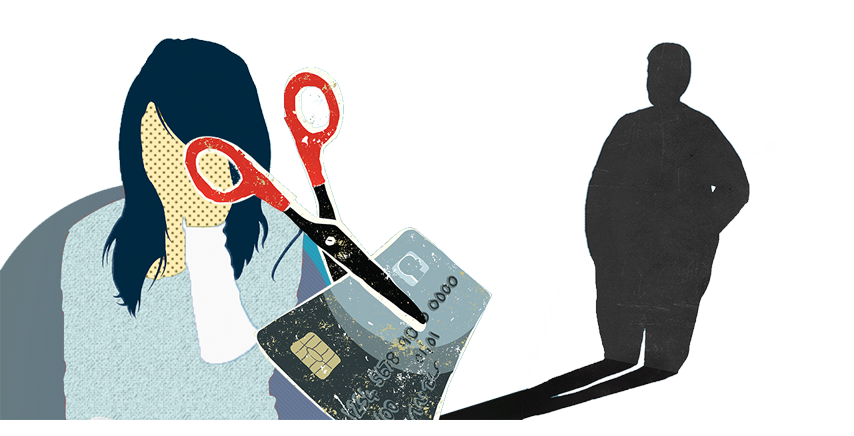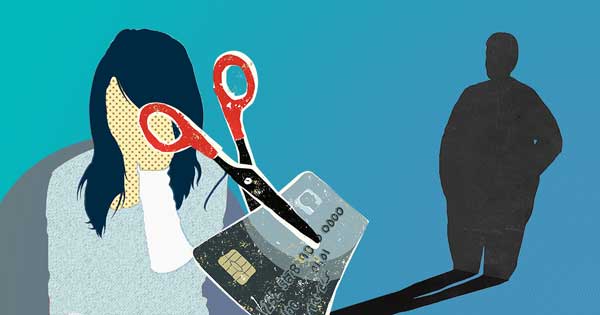You Are Not Alone!
Domestic Abuse - 16 days of action

Wiltshire and Swindon organisations are joining forces to highlight what financial abuse can look like in a relationship – and how to get help.
The organisations will be using the national 16 Days of Action for raising awareness of domestic abuse. This year is focussed on improving the understanding of financial and economic abuse, by sharing messages and promoting access to support.
Wiltshire Council, Swindon Borough Council, Wiltshire Police, Office of Police and Crime Commissioner and charities Fearless (previously known as Splitz), Swindon Domestic Abuse Support Service, Nelson Trust, and the hospitals in Swindon and Salisbury are all participating.
Fresh waves of Covid are also being seen in other countries because of waning immunity and new Covid variants. The virus keeps mutating or changing.
Financial abuse is a legally recognised form of domestic abuse and often occurs in the context of intimate partner violence. It involves the control of a partner or ex-partner’s money, finances and things that money can buy, such as clothing, transport, food and a place to live. Not having access to your own money, feeling trapped in an abusive relationship but worried how you’ll survive financially - can all have a significant impact on individuals and families. The current cost of living crisis can intensify this.
The campaign highlights the different types of financial and economic abuse and where people can find advice and support when leaving an abusive relationship. It also advises how people can help if they suspect a friend, colleague or family member is being abused.
Wiltshire charity Fearless shared an example of how a family escaping domestic abuse worried about the economic impact of leaving. A mum with young children was concerned that reporting her partner for abuse would lead to him no longer paying rent or child maintenance. Fearless worked with her to provide debt advice, arranged police intervention for the fraudulent loans taken out in her name and provided benefits advice. Along with community support Fearless ensured she could enjoy a Christmas with her children.
A Fearless spokesperson said: “Although that Christmas wasn’t financially the way it had been before, the client reported back to say that this was one of the best Christmases that they had ever had as they hadn’t had to rely on her ex-partner for anything and they had had a peaceful and calm Christmas and New Year spent together without the worry of violence or abuse.”
Common problemSuzanne Wigmore CEO Wiltshire Citizens Advice said: “Citizens Advice has a long history of helping people in financial difficulty and with problem debt. Finance related problems are some of the most common reasons people seek advice from us, and indeed these often underpin other related issues they are having such as with their housing or employment.
"Alongside this, we also see many clients who have experienced domestic abuse. We also know, and research shows that financial abuse is a very common element in abusive relationships. In addition to the use of financial means to exert control within a relationship, financial difficulty can place a significant barrier to leaving an abusive relationship. The soaring cost of living compounds this, making it even harder for people to escape abuse."
You're not aloneCllr Ian Blair-Pilling, Cabinet Member for Public Health and Public Protection at Wiltshire Council, said: “Domestic abuse can take different forms. It is important to be aware of what financial abuse can look like and where to go for help. We work closely with key organisations and charities to ensure there is plenty of support and advice for you, including financial. Please don’t suffer in silence, reach out and let us help. You will not be alone.”
Councillor Cathy Martyn, Swindon Borough Council’s Cabinet Member for Health Inequalities and Housing, said: “Domestic abuse can happen to anyone at any time. It takes many forms, including financial or economic abuse, it’s controlling, and it’s done to restrict someone’s freedom. If you or someone you know wants or needs to talk, to get advice or support, please reach out to one of the services available across Swindon and Wiltshire – they are there to help.”
Don't suffer in silenceDetective Superintendent Sarah Robbins from Wiltshire Police said: “This annual campaign highlighting the help available to victims as well as the stark message to abusers is always welcome.
“This year’s focus on economic abuse is timely as many families face financial difficulties this winter. In the depths of despair some may feel trapped and that there is nowhere to go, but that’s not fact - help is always available. I understand not everyone will want to contact the police but there are other agencies who can help. No one needs to be alone nor helpless.
Those partners include Swindon Borough and Wiltshire Councils as well as local charities. Look out for their publicity material from us and others during the 16-days campaign. Help is at hand.”
Wiltshire and Swindon’s Police and Crime Commissioner Philip Wilkinson said: “This type of abuse deeply affects its victims and can leave a lasting impression for a long time after it has stopped. While it’s happening, the perpetrators make sure their victims are dependent on them and it’s a cycle of abuse which is difficult to break. To call these people cowards doesn’t go anywhere near far enough.
“Whilst it may be difficult to spot the signs of economic abuse when you’re on the outside of a relationship looking in, we need to check in on our friends and relatives the moment we suspect something is wrong and let them know there is help available and where they can get it.”
People who are experiencing domestic abuse can contact:
WiltshireWeekdays call Fearless 01225 775276
Out of hours helpline 01225 712880.
Swindon
Swindon Domestic Abuse Support Service 24 Hour Helpline 01793 610610
In an emergency dial 999.
Economic support during the cost-of-living crisis

An abuser might also blame you for the economic hardship. They may also try to make you feel guilty by saying you should have prepared better, saved more, switched to a lower energy tariff, or not spent money on yourself or your children when you had more disposable income.
Leaving an abuserThe costs of leaving and the financial pressure of living on a single income may make it more difficult for you to leave an abuser. However, some financial support is available at this time